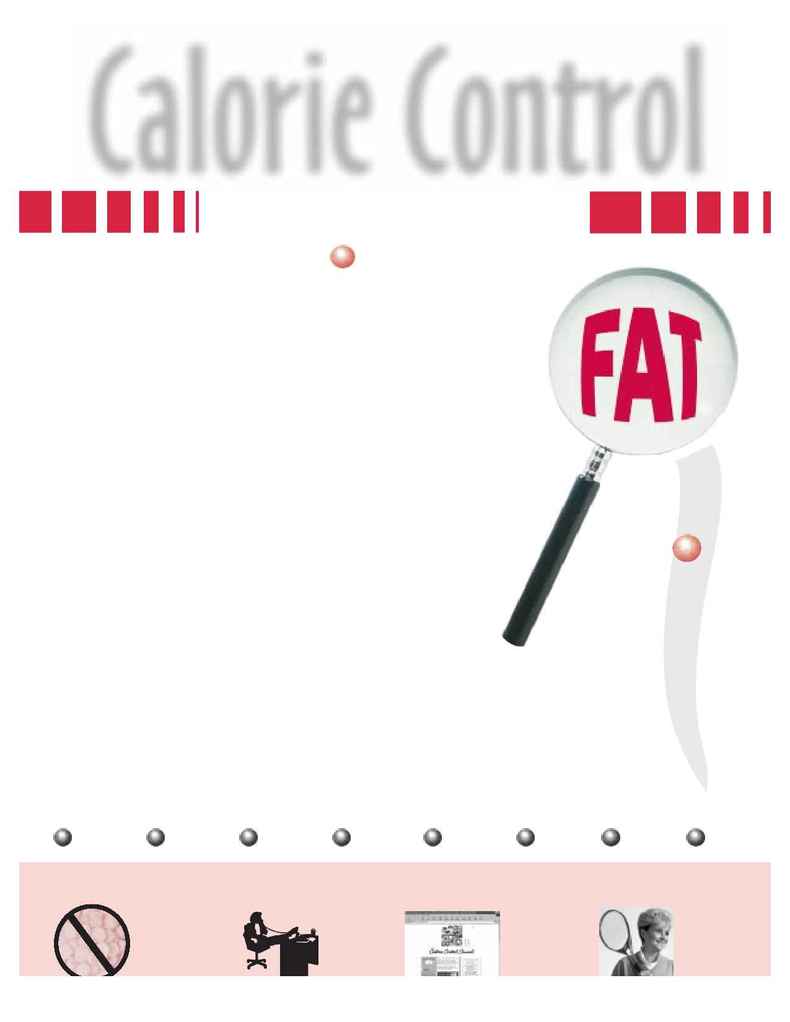
S
eats are getting wider at Yankee Stadium. Belts have increased in
length. And more Americans are choosing the "super-size"
meal at fast food restaurants. What does this add up to?
Despite the fact that fat consumption is down, obesity has
reached epidemic proportions and continues to grow.
For 30 years, nutritionists have been telling Americans to cut
the fat in their diet as a way to lose weight. Food manufacturers
responded by developing reduced-fat and fat-free products. But
many Americans took this as a license to eat more, food authori-
ties say. So, are fat-free foods to blame? Or, are there other
factors making us fat?
U.S. Department of Agriculture (USDA) experts say the rea-
son for the increasing number of overweight Americans 55
percent of the population is now considered overweight is that
people are consuming more calories than ever before.
According to the latest National Health and Nutrition
Examination Survey (NHANES), total caloric intake by adults
increased from 1,969 calories per day in 1978 to 2,200 calories
in 1990.
One of the factors contributing to America's overweight prob-
lem is eating meals out. The number of meals eaten away from
home has increased by 16 percent, almost double compared to
1977 and 1978, a USDA report says. The report also notes that
meals eaten in restaurants contain
more fat and saturated fat and fewer
nutrients than foods made at home.
Approximately 38 percent of calories come
from fat in an average restaurant meal.
A recent
Journal of the American
Dietetic Association study found that
women who eat out more than five
times per week consume almost
300 more calories and nearly
20 more grams of fat per day
than those who eat at home.
Another problem
accounting for the rise
in obesity is inactivity. Dr.
C. Everett Koop, former U.S. Surgeon General,
recently urged Americans to make fitness "a
national health priority." Experts estimate that
approximately 60 percent of Americans are not
physically active on a regular basis, and one in
four are not active at all.
As for low-fat foods, experts agree they're not a
panacea. But when used appropriately, they can be
C O M M E N T A R Y
Fall 1999
Vol. 21, No.2
Calorie Control
2
5
6
3
Low-Calorie/
Lowfat Bulletin
Todays Fad Diets:
Too Good to
be True
(continued on page 4)
Experts say the
reason for the
increasing number
of overweight
Americans is
that people are
consuming more
calories than ever
before and are not
exercising enough.
Calorie Control
Web Site Logs
Over 0 Million
Obesity Increases
Risk of Dying Early
Experts Sort Out Fact from Fiction about
3
